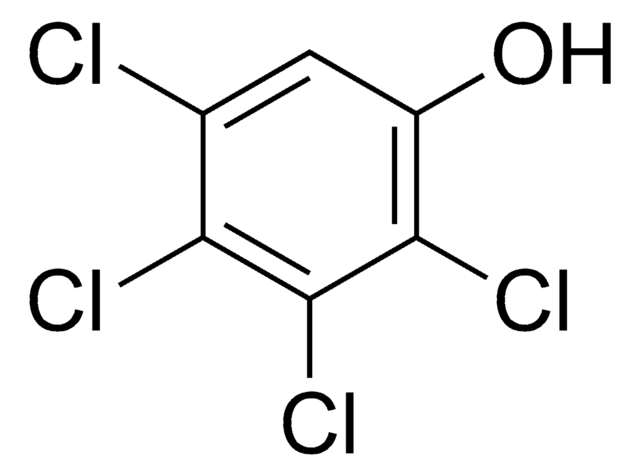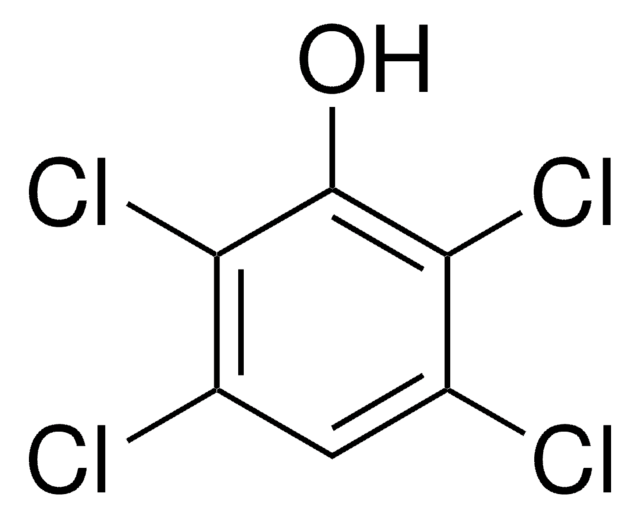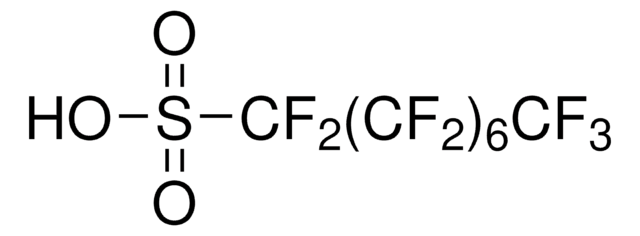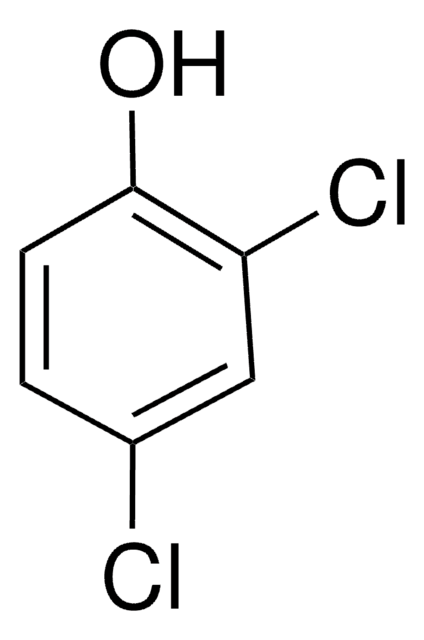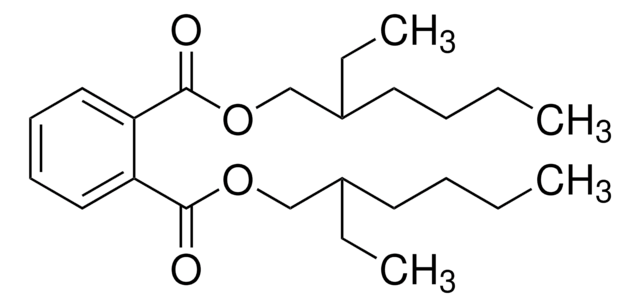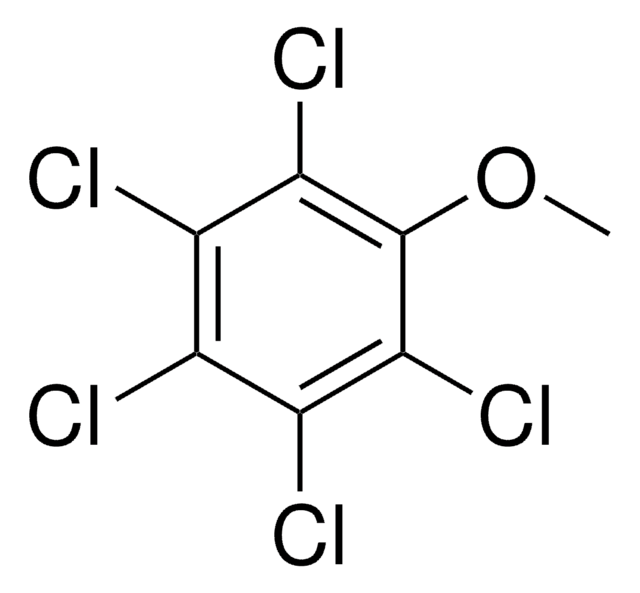P2604
Pentachlorophenol
97%
Synonym(s):
1-Hydroxy-2,3,4,5,6-pentachlorobenzene, 1-Hydroxypentachlorobenzene, 2,3,4,5,6-Pentachlorophenol
About This Item
Recommended Products
vapor density
9.2 (vs air)
Quality Level
vapor pressure
40 mmHg ( 211.2 °C)
Assay
97%
form
powder or chunks
bp
310 °C (lit.)
mp
165-180 °C (lit.)
density
1.978 g/mL at 25 °C (lit.)
SMILES string
Oc1c(Cl)c(Cl)c(Cl)c(Cl)c1Cl
InChI
1S/C6HCl5O/c7-1-2(8)4(10)6(12)5(11)3(1)9/h12H
InChI key
IZUPBVBPLAPZRR-UHFFFAOYSA-N
Looking for similar products? Visit Product Comparison Guide
Related Categories
Signal Word
Danger
Hazard Statements
Precautionary Statements
Hazard Classifications
Acute Tox. 2 Inhalation - Acute Tox. 3 Dermal - Acute Tox. 3 Oral - Aquatic Acute 1 - Aquatic Chronic 1 - Carc. 2 - Eye Irrit. 2 - Skin Irrit. 2 - STOT SE 3
Target Organs
Respiratory system
Storage Class Code
6.1A - Combustible acute toxic Cat. 1 and 2 / very toxic hazardous materials
WGK
WGK 3
Choose from one of the most recent versions:
Already Own This Product?
Find documentation for the products that you have recently purchased in the Document Library.
Our team of scientists has experience in all areas of research including Life Science, Material Science, Chemical Synthesis, Chromatography, Analytical and many others.
Contact Technical Service
